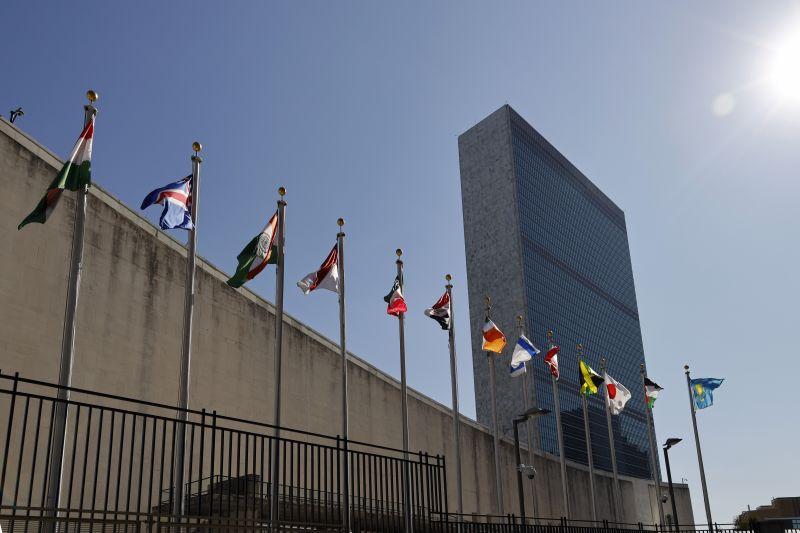Why Were There Strong Efforts To Prevent Brazil From Joining the UN Human Rights Council?
Non-governmental organizations (NGOs) in Brazil campaigned to prevent the country from occupying one of two vacant Latin American seats on the United Nations Human Rights Council (UN) for the period of 2020-2022. “Brazilian civil society organizations express their deep and serious concern about Brazil’s candidacy for the United Nations Human Rights Council for the three-year period 2020-2022,” said a manifesto signed by more than 190 organizations released days ago.
This comes as Brazil under President Jair Bolsonaro has continually been accused of human rights abuses. Ultimately, the organized effort to prevent Brazil from joining the UN Human Rights Council failed, with Brazil and Venezuela both being accepted. It can therefore be without a doubt, especially after the debacle of head chopping Saudi Arabia being admitted, that the UN Human Rights Council is just a sham to continually pressure countries that do not adhere to U.S. demands, such as Russia and China.
The protection of human rights also means the protection of peace. Unsurprisingly then, Bolsonaro’s administration voted against a resolution in favor of international solidarity, just for the fact that Cuba introduced it. This demonstrates then that Brazil’s government is driven by fanatical reactionary ideologicalism rather than prosperity and peace.
It is a curious choice that Brazil was admitted considering the way the government has positioned itself on the subject of human rights. Among the most pressing issues raised by the criticizing organization were attacks on indigenous rights. It cannot be forgotten that Bolsonaro went to the UN Assembly in New York and announced that Brazil will no longer demarcate indigenous lands, and that apparently this was a constitutional obligation, a falsity. This is a direct attack against indigenous rights, while using space at the UN to say he will break the Brazilian constitution.
Bolsonaro also recently offended the UN High Commissioner for Human Rights , former Chilean President Michelle Bachelet, mentioning her father, killed in the dictatorship of Augusto Pinochet (1973-1990), stating that Bachelet “forgets that the only reason her country is not like Cuba is thanks to those who had the courage to stop the left in 1973. Among the communists was [her] father.”
However, this is only a short list of rhetoric and views that goes against basic human rights. Included in his CV is his insistence that the US-backed military dictatorship from 1964 to 1995 was a “glorious” period in Brazil’s history, despite the widespread torture and brutality. Bolsonaro also shockingly said that “the error of the dictatorship was that it tortured, but did not kill,” curious views for someone whose country now occupies a seat in the UN Human Rights Council.
In 2014, Bolsonaro got into a heated exchange with congresswoman Maria do Rosario in the lower house of Congress, stating “I wouldn’t rape you because you don’t deserve it.” The purpose of this is not to catalogue every controversial action or statement made by the Brazilian president, but to emphasize that the UN Human Rights Council has little credibility to begin with when allowing states to occupy a seat.
Rather, the UN Human Rights Council is just a platform for aggressor states to level accusations against rising states in a multipolar world, under the mythology of impartiality. The issue of China’s western Xinjiang region has been the latest issue to be thrown against the Asian Giant. The accusation and uncollaborated reports of one million Muslim Uighurs of the Xinjiang region are being detained in reeducation camps for the supposed purpose of destroying indigenous culture and religious beliefs, is the latest attack against China in the UN Human Rights Council.
Although Brazil cannot be compared to Saudi Arabia who has continued a campaign of massacring Yemenis, beheading homosexuals, and having the worst gender inequality in the world, its admission into the UN Human Rights Council demonstrates the impartiality and hypocritical scheme that the organization is. Under the guise of legitimacy, the continued polarization of the UN Human Rights Council for being used as a political vehicle will mean the organization will become a means to pressure and discredit Russia and China.
This brings the question then, why and how was Venezuela admitted into the organization, something that President Nicolás Maduro’s government hailed it as an “important achievement”? Brazil and Venezuela were the only two candidates for the UN Security Council Seat until Costa Rica announced its own candidacy only this month in an effort to prevent Venezuela winning the seat. Brazil took 153 votes, Venezuela 105 and Costa Rica 96. It was close by all measures between Venezuela and Costa Rica. Costa Rica only had days to convince states to vote for them instead of Venezuela, most choosing Costa Rica not because of its human rights record, but for ideological purposes.
Although Venezuela won, it was a close circumstantial victory, rather than an overall reflection of who the UN wants occupying seats in the Council. The very admission of Brazil and previously Saudi Arabia demonstrates the illegitimacy of the UN Human Rights Council.
Paul Antonopoulos, Research Fellow at the Center for Syncretic Studies

